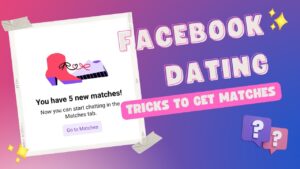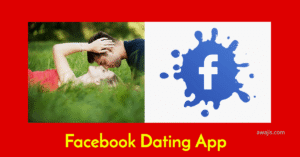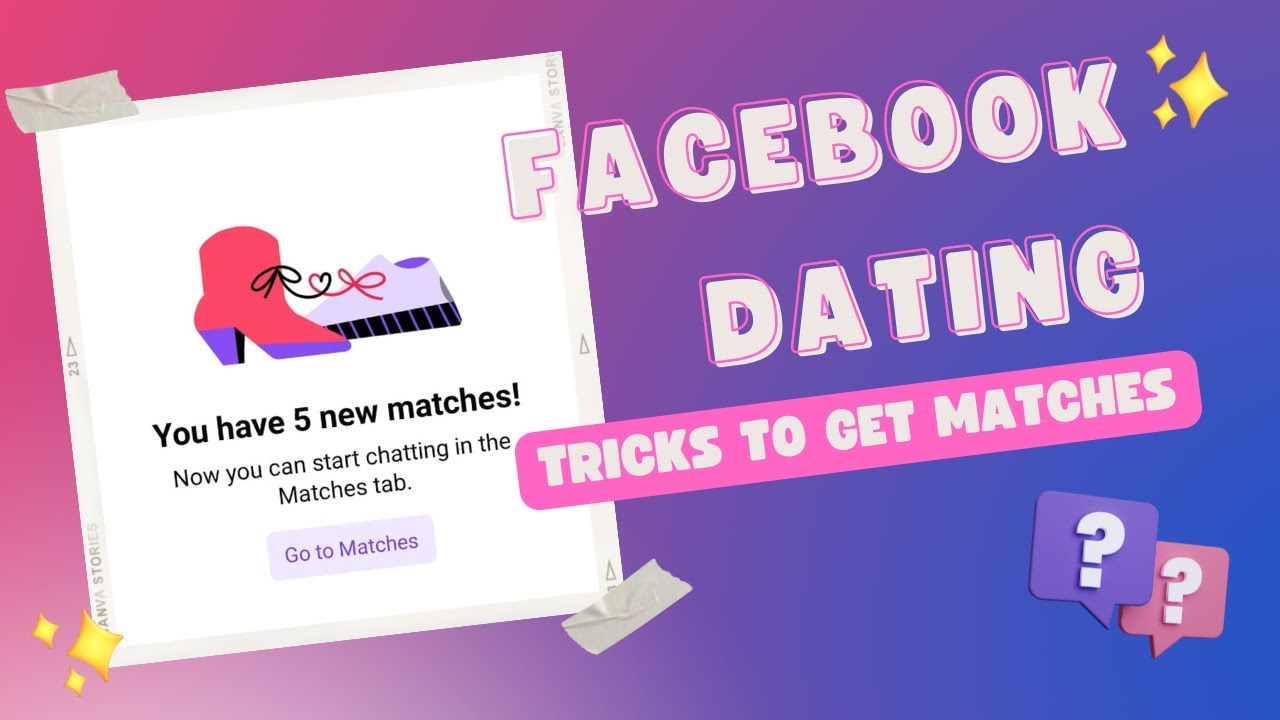Introduction
When Facebook launched its dedicated dating feature, many people were curious about how it would stand out from other popular platforms like Tinder, Bumble, or Hinge. The answer lay in Facebook’s unique advantage: the social graph. Unlike standalone apps, Facebook Dating can tap into years of social connections, interactions, and networks. One of the most interesting aspects of this is the role of mutual friends in dating matches.
Mutual friends can be a double-edged sword: on one hand, they can provide trust, context, and safety; on the other hand, they can introduce awkwardness, social pressure, or even complications. Understanding the significance of mutual friends in Facebook Dating can help users navigate the platform more effectively, make better choices, and build healthier connections.
This article will explore the benefits, drawbacks, psychology, and practical tips around mutual friends in Facebook Dating, giving you a comprehensive understanding of how this feature shapes modern digital romance.
Why Mutual Friends Matter in Online Dating
In traditional dating scenarios, people often met through shared social circles—a friend of a friend at a party, a coworker’s sibling, or someone introduced through community events. This social bridge added a layer of credibility and reduced the risks of meeting a complete stranger.

Facebook Dating reintroduces this social proof in the online space. Seeing mutual friends attached to a potential match can:
-
Build instant trust – You feel reassured that this person is “real” and not a fake profile.
-
Create conversation starters – You already share a common link that can spark a chat.
-
Offer insight into character – Friends in common can tell you something about their lifestyle, values, or community.
In an online world where anonymity can be both freeing and frightening, mutual friends act like a bridge between the digital and social realities of dating.
The Trust Factor: Safety Through Social Connections
Safety is one of the biggest concerns in online dating. Fake profiles, scams, and even predatory behavior can make people wary. Having mutual friends introduces a vetting mechanism.
-
If you see that a potential match shares several friends with you, it creates a sense of authenticity. Scammers rarely have deeply integrated friend networks.
-
You may even check with your mutual friend privately: “Hey, do you know this person? Are they trustworthy?”
-
Knowing you share a community makes it less likely the other person will behave badly, since word can spread back through social ties.
This sense of accountability makes Facebook Dating stand out from platforms where users are complete strangers.
Conversation Starters: Making the First Move Easier
Starting a conversation on a dating app can feel awkward. But when mutual friends are involved, the icebreaker often comes naturally.

Imagine this scenario:
You notice that you and your match both know Sarah, a college friend. Instead of struggling to come up with a witty opener, you can say, “I see you know Sarah! Did you two meet at university too?”
This simple shared connection can set a friendly tone and lead to a deeper conversation more quickly. In fact, studies in social psychology show that shared connections increase perceived likability, because they make the other person feel familiar and relatable.
Social Proof and Compatibility
Humans are social creatures who rely on social proof to evaluate trustworthiness and compatibility. If you see that a match shares friends with you, it’s natural to assume they might also share similar interests, values, or lifestyle choices.
For example:
-
If your mutual friend group consists of outdoorsy people, you may assume your match enjoys hiking or camping too.
-
If you share professional connections, you may guess that they have a similar career background or education level.
While these assumptions aren’t always correct, they provide a framework that helps people feel more comfortable exploring the connection.
The Psychology of Familiarity
There’s also a psychological principle at play called the mere-exposure effect. This theory suggests that the more familiar we are with something, the more we tend to like it.
Mutual friends increase a sense of familiarity—even if you’ve never met the match in person. Just knowing they’re connected to your circle makes them feel “less like a stranger.”
This familiarity reduces anxiety and can even make you more open to giving the connection a chance.
The Flip Side: Potential Awkwardness
While mutual friends can offer comfort, they can also create awkward situations. Some challenges include:
-
Fear of gossip – You may worry that if things don’t work out, mutual friends will hear about it.
-
Loss of privacy – Dating within overlapping circles can feel like your personal life is under a microscope.
-
Complications in friendships – If things end badly, your mutual friends may feel pressured to “choose sides.”
-
Romantic history overlap – Sometimes a mutual friend may have dated your match in the past, creating awkward dynamics.
These drawbacks don’t mean you shouldn’t pursue matches with mutual friends, but it’s important to navigate them thoughtfully.
Mutual Friends as Matchmakers
Interestingly, mutual friends can also act as informal matchmakers on Facebook Dating. Even without direct introductions, the shared connection often sparks curiosity.
Some users even leverage this by asking their mutual friend for a “soft reference.” For instance:
-
“Hey, I matched with Alex on Facebook Dating and saw you two are friends. What’s he like?”
-
“Do you think we’d get along?”
This mimics traditional matchmaking where friends vouch for potential partners, adding a modern digital twist.
Case Study: Success Stories
Many couples have reported success through Facebook Dating, and mutual friends often played a role in their stories.
-
Story 1: Comfort and Familiarity
Rachel and Tom had seen each other in passing at group events but never interacted directly. When they matched on Facebook Dating and noticed several shared friends, it felt natural to strike up a conversation. They later admitted that the comfort of familiarity made them more open to meeting in person. -
Story 2: Verification of Intentions
David matched with Emily, who happened to know one of his closest colleagues. Before meeting, David asked his colleague about her and got a positive review. This third-party assurance gave him the confidence to pursue the connection seriously. -
Story 3: Social Integration
For Maria and James, knowing they had mutual friends made it easier to integrate their social lives once they became a couple. Instead of introducing two completely separate friend groups, their circles overlapped naturally.
When Mutual Friends Hurt More Than Help
Of course, not all stories are positive. There are also scenarios where mutual friends complicate dating:
-
Overlapping Drama – If your mutual friends are involved in conflicts or drama, it can spill into your relationship.
-
Unwanted Opinions – Friends might feel entitled to comment on or influence your relationship.
-
Breakups Become Public – If things don’t work out, the breakup can ripple through the shared circle, making healing harder.
For some, the appeal of dating apps is anonymity and separation from their personal circles. Mutual friends can take away that buffer.
Privacy Concerns: Balancing Openness and Boundaries
Another angle to consider is privacy. Some users may not want their dating activity to intersect with their social life. Knowing that mutual friends are visible could make them hesitant.
Practical steps to protect privacy include:
-
Adjusting visibility settings in Facebook Dating to control how much information is shown.
-
Discussing boundaries early if you connect with someone who shares your circle (e.g., agreeing not to broadcast the relationship too soon).
-
Keeping dating separate until you’re ready to integrate it with your social life.
This balance helps ensure you benefit from mutual friends without feeling exposed.
Tips for Navigating Mutual Friends in Facebook Dating
Here are some practical strategies for making the most of mutual friends in your matches:
-
Use them as icebreakers – Mention your shared connection casually to start the conversation.
-
Don’t over-rely on assumptions – Just because you share a friend doesn’t mean you’ll be fully compatible.
-
Check discreetly – If you want a reference, ask your friend respectfully without putting them in an awkward spot.
-
Set boundaries – If you value privacy, clarify early how public or private you’d like to keep things.
-
Stay open-minded – A lack of mutual friends doesn’t mean a person isn’t trustworthy; treat it as just one data point.
Mutual Friends vs. Strangers: Which Is Better?
Some people prefer the familiarity of mutual friends, while others prefer the fresh start of dating complete strangers. Both have pros and cons:
-
With Mutual Friends: More trust, smoother integration, but risk of gossip and overlap.
-
With Strangers: More privacy, fewer complications, but greater safety risks.
The best choice depends on your personality and what you value more: community validation or independence.
The Future of Mutual Friends in Online Dating
As online dating evolves, the integration of social graphs will likely become even more significant. Facebook has a unique advantage here, but other platforms are exploring similar features, such as mutual interests, shared groups, and community-based dating.
In the future, algorithms may become more sophisticated, not just showing you people with mutual friends but prioritizing those whose friends are closest in your network, share the most values, or even have the most positive reputation.
This could make online dating feel even more like traditional introductions—blending technology with the age-old practice of meeting through trusted connections.
Conclusion
The role of mutual friends in Facebook Dating matches cannot be underestimated. They provide trust, comfort, and social proof, making it easier to take the leap from chatting online to meeting in real life. At the same time, they introduce challenges like privacy concerns, social pressure, and potential awkwardness.
By understanding both the benefits and drawbacks, you can use this feature strategically. Treat mutual friends as a helpful bridge, but don’t let them dictate your choices entirely. After all, while mutual connections may open the door, it’s the personal chemistry between you and your match that truly determines success.
Facebook Dating has revived the natural social element of meeting through shared circles, blending the digital with the familiar. For many, this could be the missing piece that makes online dating feel safer, friendlier, and more authentic.
